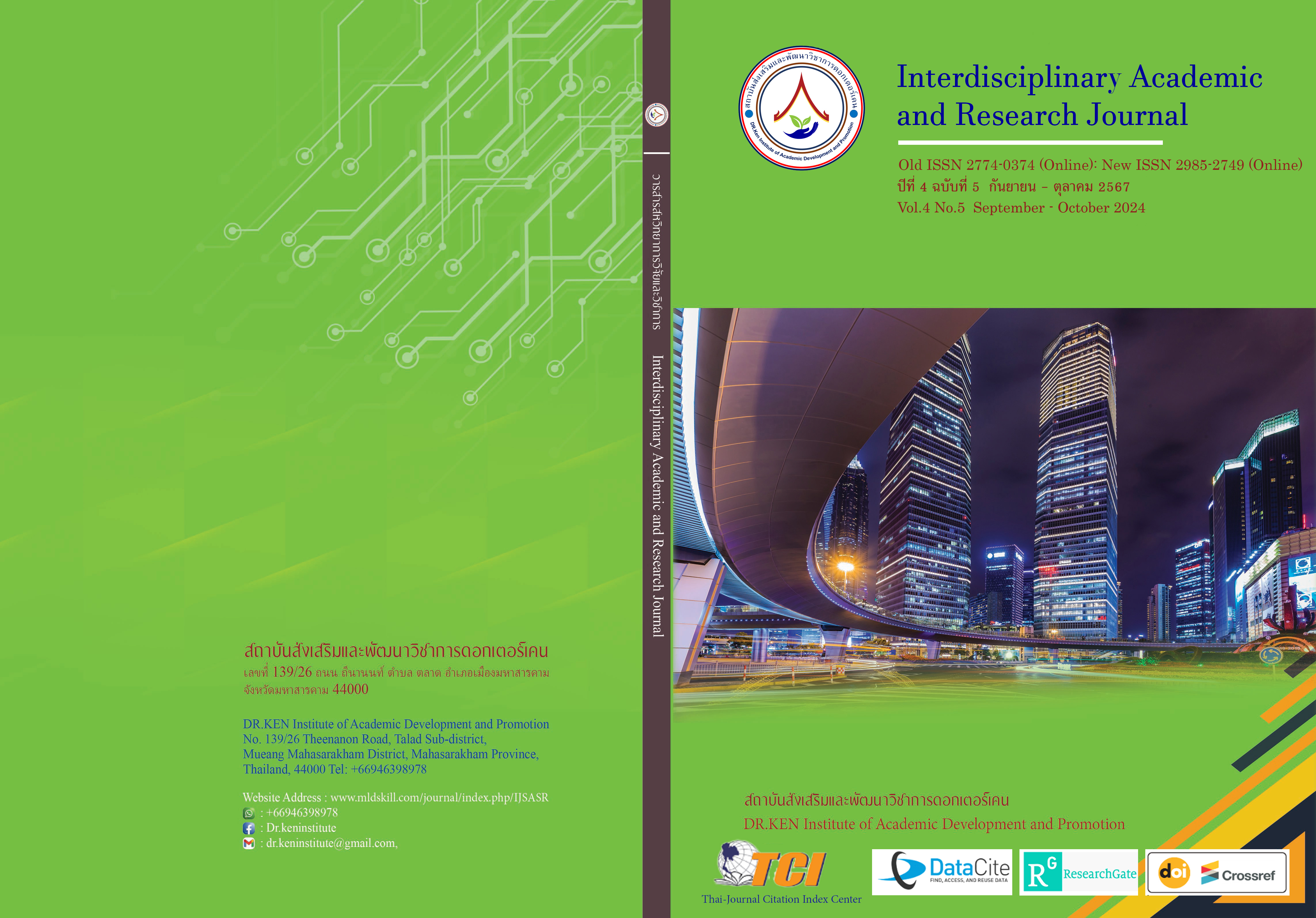The Important Role of Vegetable Festival in Phuket; The Faith to Mediums for the Gods
DOI:
https://doi.org/10.60027/iarj.2024.276454Keywords:
Mediums for the Gods;, Faith; , Vegetable Festival;, PhuketAbstract
Background and Aims: The tradition of eating vegetables in Phuket Province. Some beliefs influence the way of life that appears in traditions from cultural inheritance. Especially the royal horses who perform ritual duties and the people who work together. The important role of the royal horse in the tradition of eating vegetables comes from belief and faith in continuing the tradition from the past to the present. The purpose of this study was to explore the important role of vegetable-eating traditions in Phuket Province.
Methodology: This study was conducted by studying and analyzing documents related to the tradition of eating vegetables in Phuket Province. Then the content was analyzed and presented descriptively.
Results: This tradition is divided into 3 periods: the pre-event preparation period the day before the tradition, during the tradition, and the day after the tradition. 1. Preparation is a time of cleaning various appliances. 2. During traditional days it is a stage of practice. In addition, there are various miracles performed by the horses, such as the torture of oneself through various methods. 3. After the tradition, there will be a ceremony to pour sago teng. The Ceremony Kho Kun is feeding soldiers sweet and savory food it’s called Kui Chow.
Conclusion: Phuket’s traditional vegetable eating festival. The shrines are performed space. By a short a short period according to schedule along with organizing various activities. This area has created a bond with people in the community. The people who come to interact with the Vegetable Festival Various activities are organized with enhancement. The Phuket Vegetable Festival became part of the artificial space for tourism.
References
กิติพัฒน์ นนทปัทมะดุลย์. (2544). นโยบายสังคมและสวัสดิการสังคม. พิมพ์ครั้งที่ 3. กรุงเทพมหานคร : มหาวิทยาลัยธรรมศาสตร์.
กุลธิดา อู่บูรณกุล และกาญจนา แก้วเทพ. (2556). กระบวนการสื่อสารเพื่อสืบทอดประเพณีถือศีลกินผัก จังหวัดภูเก็ต. วารสารนิเทศศาสตร์, 31 (2), 139-153.
ธนัสถ์ สุวัฒมหาตม์. (2549). “เทศกาลกินเจในเดือนเก้า” บทความพิเศษใน ความเข้าใจเรื่องการกินเจ หน้า 66-124 กรุงเทพมหานคร สมาคมเผยแผ่คุณธรรม “เต็กก่า” จีจินเกาะ
นิชาภา พฤกษวัลต์. (2566). พิธีกรรมความศรัทธา การสืบทอดวัฒนธรรมจีน กรณีศึกษา : ม้าทรงการสื่อสารจากเทพเจ้าสู่ลูกหลานศาลเจ้าจ้าวเองสือ (พระ 108 เจ้าแม่ทับทิม) จังหวัดปัตตานี. วารสารรูสมิแล, 4 (2), 29-42.
ปัทมาสน์ พิณนุกูล ศุภชัย สิงห์ยะบุศย์ และเมตตา ศิริสุข. (2563). “ม้าทรง” ความเป็นเทพกับความเป็นมนุษย์ปฏิบัติการในพื้นที่พิธีกรรมงานประเพณีถือศีลกินผักของจังหวัดภูเก็ต. วารสารวิชาการมหาวิทยาลัยราชภัฏภูเก็ต, 16(1), 183-208.
ปิยะพงษ์ ทับทิมทอง. (2554). ประเพณีกินเจของชาวภูเก็ต : กรณีศึกษาศาลเจ้าจุ้ยตุ่ยเต้าโบ้เก้ง. วิทยานิพนธ์ศิลปศาสตรมหาบัณฑิต สาขาวิชาไทยศึกษา มหาวิทยาลัยรามคำแหง
ปิยะพงษ์ ทับทิมทอง. (2557). ประเพณีกินเจของชาวภูเก็ต : กรณีศึกษาศาลเจ้าจุ้ยตุ่ยเต้าโบ้เก้ง. วารสารวิจัยรำไพพรรณี, 8(1), 76-82.
สมชาย มนูจันทรัถ. (2551). ปรากฎการณ์ใหม่ของประเพณีกินผักในจังหวัดภูเก็ต : กรณีศึกษาศาลเจ้าจุ้ยตุ้ยเต้าโบ้เก้ง (วืทยานิพนธ์ปริญญามหาบัณฑิต, มหาวิทยาลัยสุโขทัยธรรมาธิราช). Retrieved from: https://ir.stou.ac.th/handle/123456789/639
เสาวภา ไพทยวัฒน์. (2543). “การศึกษาม้าทรงของศาลเจ้าในจังหวัดพังงาและจังหวัดภูเก็ต” กรุงเทพมหานคร สำนักงานสภาสถาบันราชภัฏ.
Durkheim, E. (1965).The Elementary Forms of the Religious Life. New York: The Free Pree.
Samuthakhup, S., et al. (1996). Spirit-Medium Cult Discourses and Crisis of Modernity in Thailand. Bangkok: SAC Princess Maha Chakri Sirindhorn Anthropology Centre.
Downloads
Published
How to Cite
Issue
Section
License
Copyright (c) 2024 Interdisciplinary Academic and Research Journal

This work is licensed under a Creative Commons Attribution-NonCommercial-NoDerivatives 4.0 International License.
Copyright on any article in the Interdisciplinary Academic and Research Journal is retained by the author(s) under the under the Creative Commons Attribution-NonCommercial-NoDerivatives 4.0 International License. Permission to use text, content, images, etc. of publication. Any user to read, download, copy, distribute, print, search, or link to the full texts of articles, crawl them for indexing, pass them as data to software, or use them for any other lawful purpose. But do not use it for commercial use or with the intent to benefit any business.
















.png)


